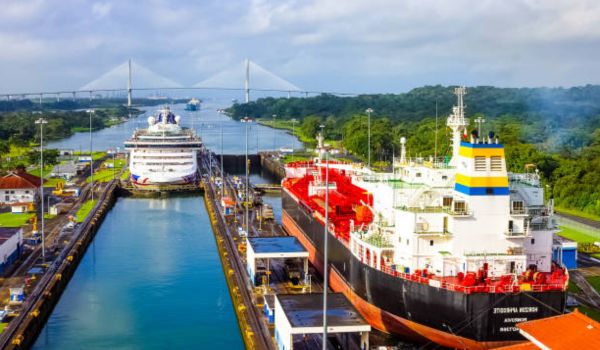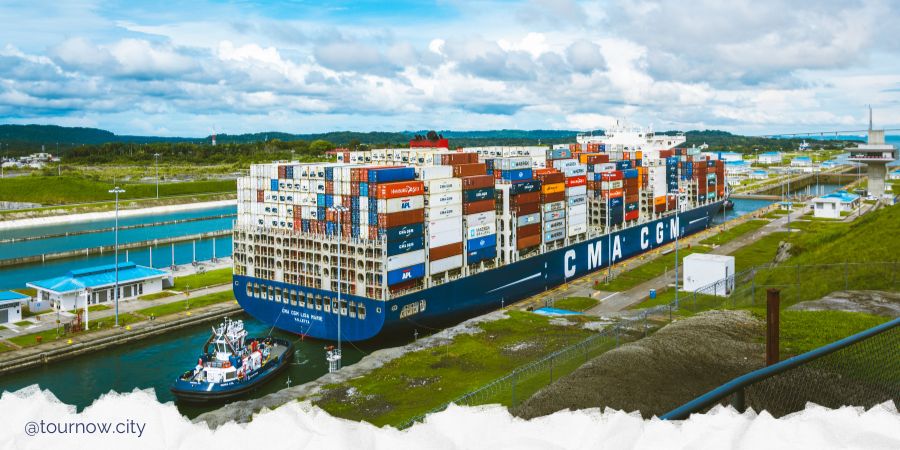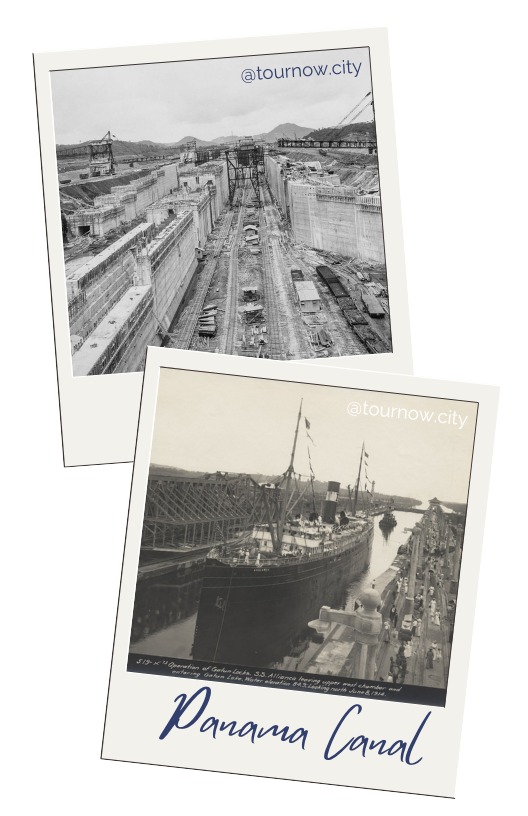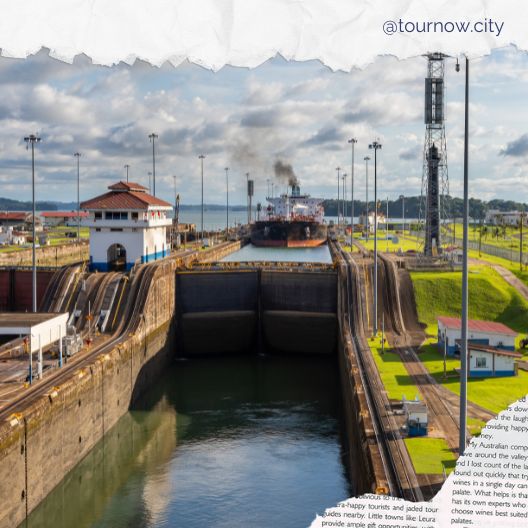The Panama Canal is one of the world’s greatest engineering feats. It connects the Atlantic and Pacific oceans, making it possible for ships to travel between Europe, Asia and the U.S. without having to go around South America’s southern tip. The canal is also an essential piece of infrastructure for international trade routes; more than 14,000 ships use it every year. In 2020 a new set of locks was added to increase traffic flow and help accommodate bigger ships. Let us give you some of the most impressive Panama Canal facts:

Table of Contents
Panama Canal facts: it connects the Atlantic and Pacific oceans
The Panama Canal is an engineering marvel. It’s located in Panama (Central America) and connects the Atlantic Ocean to the Pacific Ocean, which means that ships traveling between these two regions can take a shortcut through the canal instead of having to travel all around South America. The waterway was built by thousands of workers who used shovels and steam shovels to dig out dirt from mountains, then used dynamite to blast apart rock formations, so they could clear a path for ships. The canal is an engineering marvel: it takes just 8 hours for a ship to go through from one ocean to another!
You’ve probably heard of the Panama Canal, but do you know how it works?
The canal is an engineering marvel
The Panama Canal is a man-made waterway that connects the Atlantic Ocean with the Pacific Ocean and stretches across 80 km (50 miles). The canal was built in 1914 and has been undergoing expansion since 2007. The canal is currently operating at full capacity, but could still be expanded if needed by adding more locks or deepening its channel.
So what makes this waterway so important? For one thing, it saves time: Ships that travel from East Coast ports to West Coast ports can cut their transit time in half by using a route that goes through the canal instead of around Cape Horn at the southern tip of South America (or up through Russia). The time savings make shipping goods much more cost-effective and helps keep prices low for consumers worldwide.
In 2020, a new set of locks was added to the canal

In 2020, a new set of locks was added to the canal. These are larger than the previous ones, and they’re deeper, too. The locks allow more ships to pass through at one time—and they’ll also reduce wait times by up to 20 hours
The canal WAS expanded due to increasing traffic
The Panama Canal was expanded due to increasing traffic. The expansion project, which began in 2007, added a new lane of traffic, allowing for more ships to pass through at a time. The expansion was completed in 2022 and increased the capacity of the canal by 50%. The project is estimated to have cost $5.25 billion dollars – or roughly $1 million per minute!
Canal usage is expected to double in the next 20 years
The Panama Canal was constructed between 1904 and 1914, and it opened in August 1914. It is expected that the canal’s capacity will be doubled in the next 20 years due to its expansion.
While the Panama Canal is probably one of the most famous man-made waterways in the world, there are plenty of other intriguing canals around the world as well: The Suez Canal (connects the Gulf of Suez and the Mediterranean Sea, separating Asia from Africa), The Beijing-Hangzhou Canal (in China), the Corinth Canal (separates the Peloponnese from mainland Greece). But none of them is as enormous and has a bigger impact in the world’s economy as the Panama Canal.
More than 14,000 ships use the canal every year. In 2022, 14,239 ships transit through the Canal, of which 13,009 were deep-draft vessels (panamax and neopanamax) and 1,230 small vessels.

The government of Panama runs the Panama Canal
The Panama Canal is run by a government-owned agency called the Panama Canal Authority (PCA). It’s an autonomous agency of the government of Panama, and it’s a public corporation. The PCA was created in 1904 as an independent authority, but it’s now under the control of the President and his administration.
The PCA has its own budget, which comes from tolls collected from ships passing through the canal. This money is used to pay for maintenance and expansion projects. The PCA also has its own staff—more than 1,200 employees work at locks or other facilities on both sides of the waterway—and they’re all employed by either this agency or another one within Panama’s Public Works Ministry (MOP).
The United States built and ran the Panama Canal until 1999
You might be surprised to learn that the Panama Canal is not a US-owned canal. The US built it and ran it until 1999, when they handed over management rights to Panama. Now, there’s no way for America to influence what happens with this vital waterway.

The Panama Canal is an engineering marvel that has stood the test of time. It’s a testament to man’s ingenuity and determination to find ways around obstacles in order to achieve what was once thought impossible. The Panama Canal is a vital piece of global infrastructure, over the last 100 years has grown to be an essential link for global trade. We hope this article has given you some insight into how it works, why it was built and its history, as well as why it’s still relevant today!

So remember, when you are ready to visit the canal, with a certified bilingual tour guide, who can really show you this and other beauties of this marvelous city of Panama, just click here and Tour Now will send you a guide right away.
Let us take care of you.
